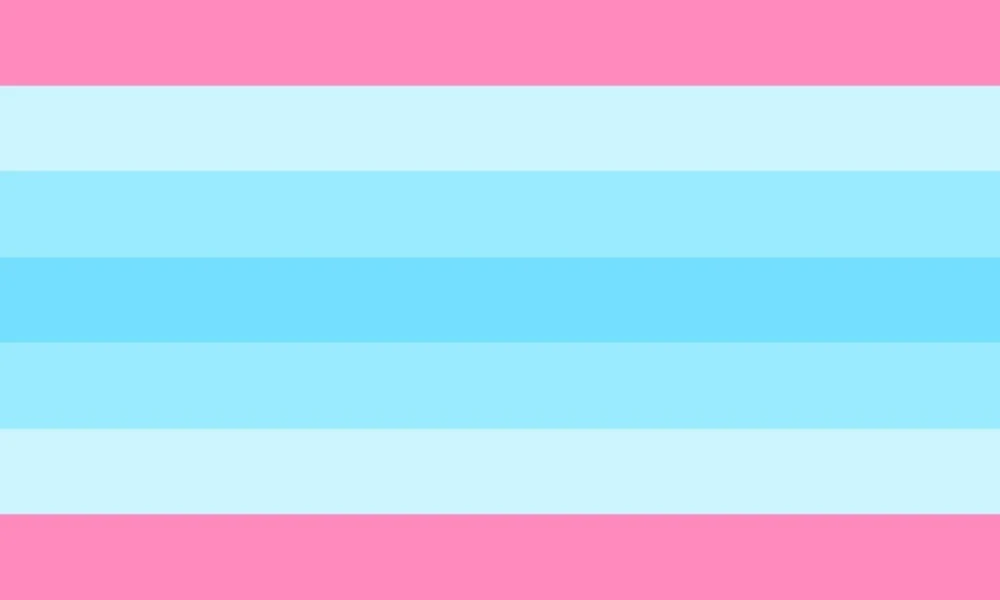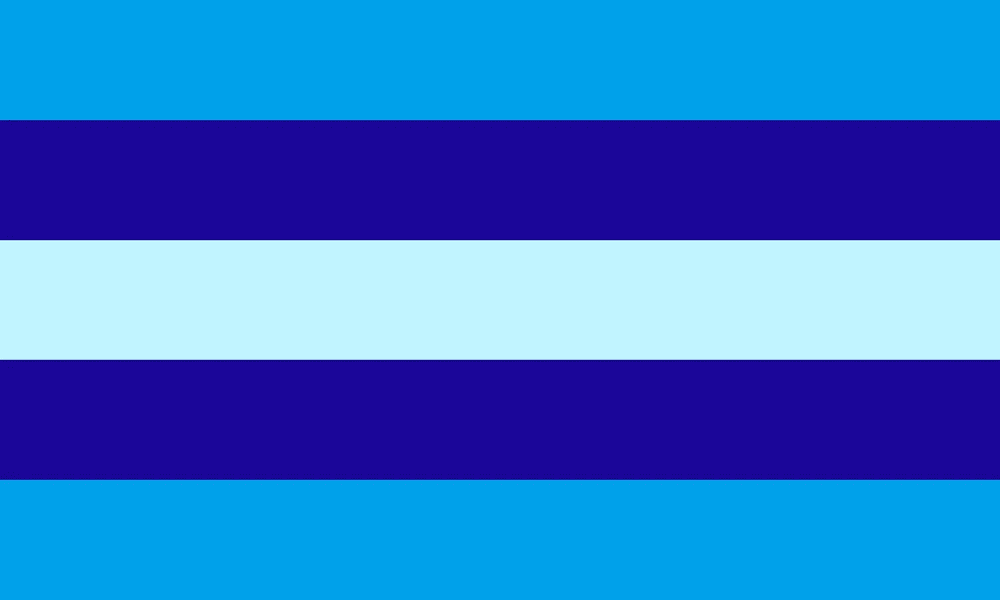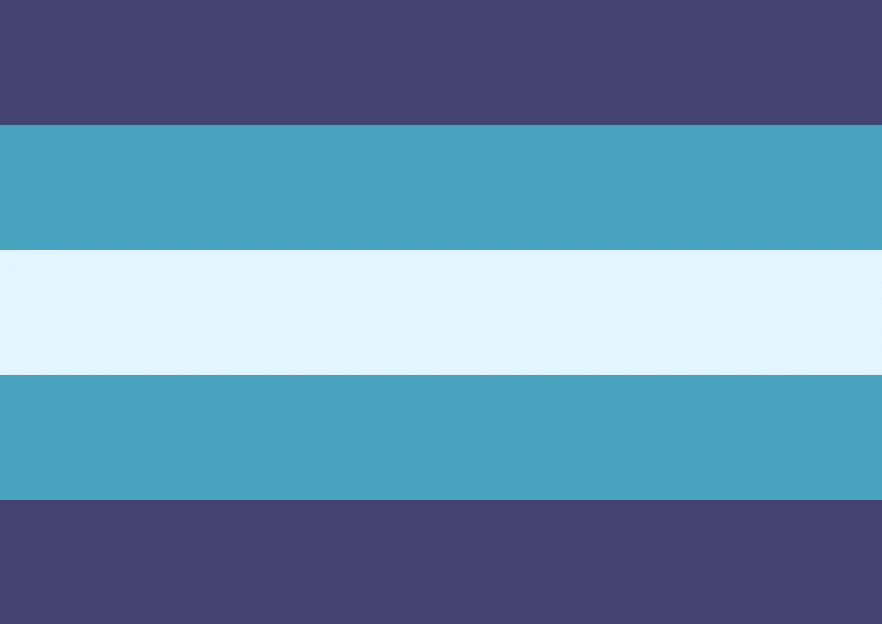Transmasculine – What is it? What does it mean?
Terminology
Transmasculine is a broad term that can be applied to a variety of people who feel a stronger connection with masculinity than they were assigned at birth. As stated above, the majority of transmasculine individuals were assigned female at birth, but this is not necessarily the case; people whose sex could not be assigned when they were born but adopt a masculine identity or present in a masculine way are also transmasculine individuals.
A person does not have to fully identify as a man to be considered transmasculine; people who were assigned female at birth- or people whose sex could not be determined – whose gender expression or gender identity is partially masculine are also valid transmasculine individuals, for example: (non-binary) trans men, intersex people, demiboys, genderfluid people, non-binary folks, and multigender people. According to some, even masculine-presenting women may be considered transmasculine people.
A person does not have to have undergone hormone therapy, surgery, or a transition to be transmasculine. The bar for referring to one’s self as transmasc is typically quite low, with the language encouraging diversity and exploring different gender roles associated with masculinity.
There are some who state that some form of hormone replacement therapy or other surgery aimed at having a person’s body conform to their gender identity is required to be transmasculine. It should be noted that this view is not the most common one, and many express the opinion that this view is actually transphobic, so be careful using this definition.
Related terms
Here, we explain some of the terms related to transmasc.
AFAB, AMAB, AXAB and UAB
The terms AFAB, AXAB, and UAB refer to people who were Assigned Female / Assigned Male / Assigned X (or unknown/undeterminable) or Unassigned At Birth. These terms are commonly used in the discourse surrounding transgender folks as a way of talking about the gender that somebody was assigned immediately after they were born, which is usually falsely linked to a person’s sex. These terms allow allies to talk about the process by which a person’s gender is seen to be the same as their sex and. sometimes falsely, determined when they are born, without condoning this practice.
Demiboy
A demiboy, also known as a demiguy, is a person who identifies as partially masculine. Because a demiboy identifies as partly masculine, demiboys are always transmasculine.
AFAB Gender-fluid
An AFAB Gender-fluid person is someone who, after having been seen to be a woman when they were born, went on not to identify with a singular gender. Fluid, in this sense, refers to the fluidity of their gender, which takes on many shapes and forms.
Transfeminine
Transfeminine is the feminine equivalent of transmasculine and, as such, refers to non-AFAB individuals who relate more to the feminine equivalent of the gender roles that fit the gender they had been assigned.
History
The term transmasculine has been around in queer culture for a while: at least 20 years. However, very little links this term to a particular moment in time, which suggests the term came into use very gradually, making it hard to pinpoint its moment of inception. One of the earliest recorded uses of the word transmasc is in the name of the organisation DC Area Transmasculine Society (DCATS), which was founded in 2000. This organisation, however, says that it did not come up with the term transmasculinity, so the term must originate from before the year 2000.
Sex Educator and Education Director for Good Vibrations Andy Duran says that the term was coined to identify a blank space in masculinity that previously had no other words for it; the term comes into play once you understand that for transgender people, just like for everyone else, gender is not a binary, and identifying with masculinity does not necessarily mean that you identify as a man. Duran: “The term ‘trans masculine’ breaks this idea that you had to fully identify as ‘male.’ It puts it back into a spectrum.” For more information, check out Duran’s Twitter.
Flags and Symbols
The most common transmasculine flag consists of pink stripes on the top and bottom, with gradients towards light blue towards the middle. This most common transmasculine flag draws inspiration from the transgender flag, representing the chance from femininity towards masculinity.
 Transmasculine flag
Transmasculine flag
There many variations on this flag, each drawing inspiration from different other flags. The common theme among most of these is the shift from female towards the masculine identity.
There is currently no transmasculine symbol.
Pronouns
There is no one correct set of pronouns for transmasculine people that fits all gender identities falling under transmasc. As outlined before, there is a variety of transmasculine people, who each identify with a different form of transmasculine gender identity. Seeing how the transmasculine umbrella covers a lot of transgender and other gender identities, the safest approach to using the correct words for referring to transmasculine individuals is by asking them; please keep in mind that how you describe someone, especially a transgender person, has a lot of impact on how safe and comfortable they feel with how they identify, and violating their preference for inclusive language may damage their health.
It should be noted that not all transmasculine people identify as trans men, and not all transmasculine people identify with the he/him pronoun set, even if this is typically the case, so we hope you will help make the world a better place by using the right words to describe transmasculine individuals.
Am I transmasc?
This is an interesting question, as there is a relatively low bar for identifying as transmasculine. If you were born and assigned female but don’t want to fit into female gender roles, or simply feel less femininity/ more masculine than what you believe to be the standard for most women, your identity may be closer to masculinity than the norm. Note that this does not necessarily mean you are transmasculine, as there are many aspects to both being masculine, and to being transmasculine. You may also want to ask yourself if you really want to present yourself as more masculine, or simply want to come across as less femininely; note that there are many a gender identity in between man and woman, and many more outside this binary.
A good sign that you may be transmasculine is that you identify with masculinity specifically. Keep in mind that you do not have to identify as fully masculine to be transmasculine. Another thing to keep in mind is that such realisations take time, and do not come out of the blue. For example: you may have always felt like you connect with your masculine side more, but haven’t felt like this affected your gender (up until now, for instance).
Find the support you need, either online or in your personal circles, to explore your trans or transmasculine gender and identity. Keep in mind that there are endless sources of help online, so for more information, check out the available online transmasculine support groups.
How to support someone who is transmasc
As you probably know, trans people who do not feel supported in the transition, coming out, or otherwise in their identities may suffer from severe health conditions. For this reason, it is crucial to support your trans friends, family members, and acquaintances. Luckily for you, there are many ways to do so, and here we list a few:
- Be an ally! Loudly support the LGBT community everywhere you go, online or irl!
- Celebrate pride!
- Accept someone for who they are, rather than judging them for their trans or transmasculine gender.
- Offer your services to transmasculine people in any way you can! See a transmasculine friend struggling at school, work, or out and about? Offer to help! Just be respectful and mindful.
- Keep in mind that identifying as transmasculine does not require someone to transition first, and do not question someone’s transmasculine identity.
- If you feel someone needs professional help, talk to them about contracting a professional’s services. Never push, just talk!
Gallery
 Trans man/transmasculine flag” data-result=”success”> Trans man/transmasculine flag
Trans man/transmasculine flag” data-result=”success”> Trans man/transmasculine flag
 Alternate transmasc flag
Alternate transmasc flag
 Alternate transmasculine flag by unknown reddit user
Alternate transmasculine flag by unknown reddit user
 Alternate transmasculine flag
Alternate transmasculine flag
 Alternate transmasc flag by The ever so sparkly Julian!
Alternate transmasc flag by The ever so sparkly Julian!
 Alternate flag by an unknown creator
Alternate flag by an unknown creator
 Transmasc flag by lavendroused
Transmasc flag by lavendroused
 Non-binding Transmasc Flag by dj_m0th
Non-binding Transmasc Flag by dj_m0th
